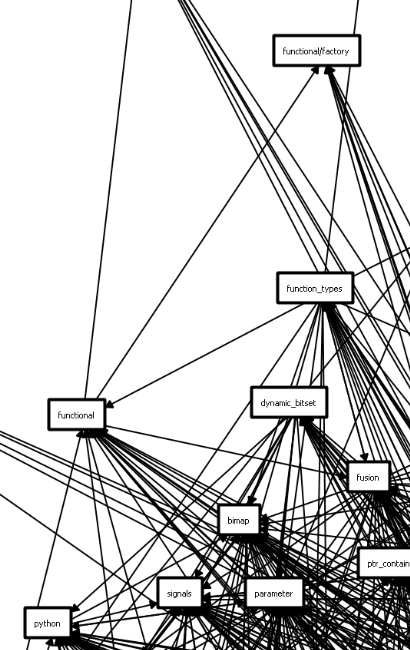Open Multi-Methods for C++11, Part 1 -- Jean-Louis Leroy
 New on Code Project:
New on Code Project:
Open Multi-Methods for C++11, Part 1
by Jean-Louis Leroy
Note: We recommend first reading this C++ multimethods paper coauthored by Bjarne Stroustrup for more background.
From the article:
This article is the first in a series about open multi-methods for C++11. In this installment, I will explain what they are, how they fit in the object-oriented paradigm, and make controversial statements.
Subsequent articles will present a new library that implements open multi-methods, using the facilities provided by C++11 (in particular, variadic templates). The library's salient features are: fast, constant time dispatch using compact tables; arbitrary number of virtual and non virtual arguments; access to the next most specific specialization; and support for shared libraries and dynamic loading. The series will conclude with an in-depth presentation of the internals of the library. ...

 From the desk of ARK:
From the desk of ARK: This open source REST SDK also supports Linux...
This open source REST SDK also supports Linux... The "universal references" term is getting traction:
The "universal references" term is getting traction:
 Bjarne Stroustrup spoke at this summer's ACM International Collegiate Programming Contest World Finals held in St. Petersburg, Russia. While there, he also gave this 8-minute interview in the context of balancing efficient code with the out-of-the-box problem solving required by ICPC problem challenges.
Bjarne Stroustrup spoke at this summer's ACM International Collegiate Programming Contest World Finals held in St. Petersburg, Russia. While there, he also gave this 8-minute interview in the context of balancing efficient code with the out-of-the-box problem solving required by ICPC problem challenges. This is a pretty cool little project:
This is a pretty cool little project: The Stellar Group at Louisiana State University has released version 0.9.6 of High Performance Parallex (HPX) for Linux, MacOS, Windows, and Android.
The Stellar Group at Louisiana State University has released version 0.9.6 of High Performance Parallex (HPX) for Linux, MacOS, Windows, and Android.